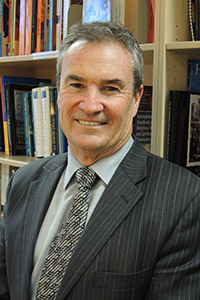News and Media

Our Future Leaders – Secondary Colleges by Dr Tony Bracken
We need future leaders that can transform society. And a model of leadership where service to others is more important than self-promotion is the sort of leadership that can be transformative. Graduates of contemporary Catholic secondary colleges have experienced cultures that aim to promote the growth of the whole person, where personal gifts are cultivated for the wellbeing of the individual and the good of the community.
Catholic secondary colleges promote the growth of the whole person via a philosophy that draws on the spirit of their founders. They encourage students to lead within their school community, their parish community and as advocates in the wider society.
Many Catholic secondary colleges draw strongly on the spirit of religious orders to cultivate a sense of Christian service and community among students and staff. These religious orders were animated to serve in Catholic schools by the pioneering example of the order’s founder. Apart from our own Mary Mackillop, many religious orders established overseas came to Australia to set up schools and teach. The faith and generosity of the multitudes of religious nuns and brothers who established and staffed these schools is a treasured legacy in Catholic education in Australia.
The founder’s story and vision within these religious orders is now meaningfully translated and brought to life in these schools, acting as a compass point for Christian living and service. While the members of these orders today may not be physically present in the school in large numbers, the founding spirit of the order is very much alive, animating students and staff to serve both within the daily life of the school and the community.
Students gain important insights about the importance of serving by leading through this connection with the religious orders and their founding vision. In a real sense this legacy is shaping future leaders.
Some Catholic secondary colleges draw their founding vision from saints and significant leaders in the Catholic Church internationally or in Australia. The faith, life stories and context of these key figures in the Catholic Church provide important models for Christian living and leadership in contemporary times.
A pastoral priority in the Catholic life of the secondary college is to cultivate a supportive learning environment where each student has an opportunity to develop intellectual and socio- emotional competencies that assist them to be self- regulated, confident learners. Key human resources and structures ensure students receive appropriate levels of pastoral and educational support.
Year-based groupings and initiatives, as well as multi-age experiences, provide opportunity for friendships between students of the same age and to build their identity with students of different ages. Peer support initiatives, for example, facilitate mentoring relationships between younger and older students and equip student mentors with problem solving and conflict resolution skills that assist younger students to develop positive relationships. These experiences cultivate opportunities for leadership cultures and mentoring through the ups and downs of community life.
Hearing the concerns of students in community life is an important aspect of authentic community. Students are given a voice through representative and pastoral structures in Catholic secondary colleges. This models an important characteristic of leadership and of future leaders – to be attentive to the needs of individuals and respects their views.
Catholic secondary school students are frequently presented to the wider community as advocates on social justice issues, or engaged in community service. Community service is easily framed within the vision of the founding order in a Catholic secondary college and as a way of expressing Christian love.
Importantly for each student, engaging in community service, which may be out of his or her ‘comfort zone’, may encourage major perspective shifts with new insights into the experiences of others and the growth of empathy and tolerance.
These experiences can have lifelong and life- changing implications. For some students it will mean further commitment to voluntary service within the community, leading to future roles of influence and leadership.
‘Beyond the school gate’ engagement can provide older secondary students with experiences that build confidence and skills in public advocacy. A number of Catholic secondary colleges in the metropolitan area, for example, are supporting their senior students’ involvement with the Sydney Alliance, a grass roots non-denominational advocacy group. It raises matters of grass roots concern in areas such as health and transport services, on behalf of those who use these services. Students engaged in the Sydney Alliance benefit from professional guidance and workshops on effective and responsible public advocacy strategies.
Students appointed to formal leadership roles in Catholic secondary colleges will also have many opportunities for public speaking, contact with leaders from other schools, representative duties at parent and whole school functions, and contact with civic representatives and politicians. Beyond these formal roles, leadership is invariably promoted as a characteristic expected of all senior students.
A final insight into the role of the Catholic secondary college in contributing to future leaders involves personal formation and opportunities for inner leadership. How students and teachers experience Catholic secondary colleges can be spiritually formative – both in the daily experience of community and often inspired by the founding vision of the school. These experiences present opportunities for encounters with Jesus and the lived values of the Gospel.
The emphasis on the growth of the whole person at the core of Catholic secondary colleges provides an environment where leadership as service with a clear moral compass is nurtured. This kind of leadership will continue to contribute to society

Dr Tony Bracken is the Assistant Director of School Improvement at the Catholic Schools Office for Broken Bay Diocese, NSW. In this role, he oversees a current focus on learning and school improvement across all schools in the system. He is also responsible for strategic oversight of, and support for, school cultures that represent the voices of students and encourage student leadership.
Tony’s prior professional experience includes a senior role at the Catholic Education Office in Parramatta where he worked on professional learning, learning services, formation and leadership development. Prior to that, he was a secondary principal for six years.
His doctoral research focused on the principal’s leadership role in the spiritual formation of teachers. Tony maintains professional connections with the university sector, advising three education faculties in Sydney and he is also the Deputy Chair of the National Policy Committee of the Australian College of Educators. Tony has presented at national and international conferences on school improvement, leadership development and teacher formation.

